In the rapidly evolving world of artificial intelligence, businesses are constantly seeking innovative solutions to enhance their customer interactions and streamline operations. Voicify AI has emerged as a leading platform for creating and managing voice applications, offering a suite of tools designed to optimize voice-driven experiences. However, the market is brimming with competitors that provide unique features and capabilities. In this blog, we’ll explore the seven best Voicify AI alternatives and competitors for 2024, helping you make an informed decision on the best platform for your needs.
What is Voicify AI?
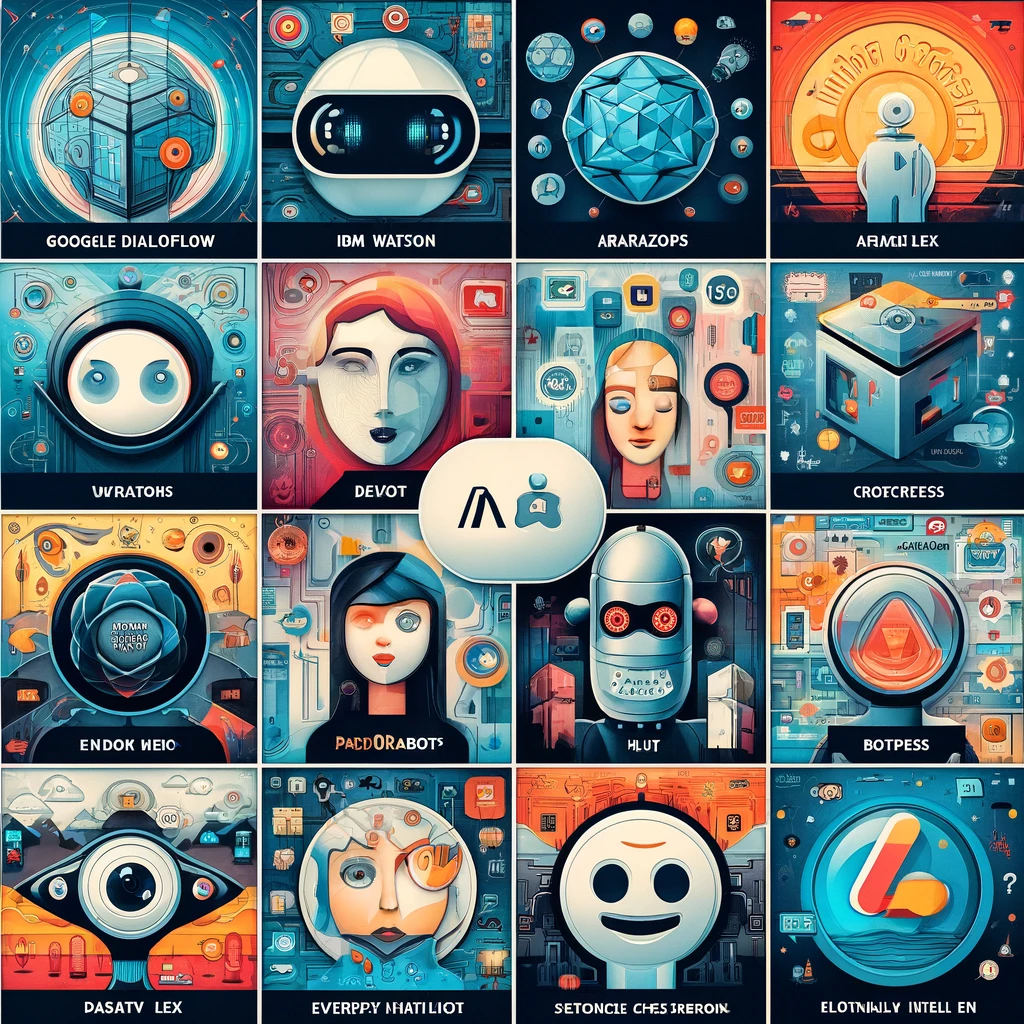
Voicify AI is a cutting-edge platform that allows businesses to create, manage, and optimize voice applications for various devices and services. It provides a comprehensive suite of tools designed to simplify the development process, making it accessible even for those with minimal technical expertise. Key features of Voicify AI include:
- Voice App Creation: Intuitive tools for building custom voice applications.
- Content Management: A centralized system for managing voice content across different platforms.
- Analytics: Detailed insights into user interactions and application performance.
- Integration: Seamless integration with popular voice assistants like Amazon Alexa and Google Assistant.
- Personalization: Advanced capabilities to tailor voice experiences to individual users.
Voicify AI’s robust feature set and ease of use make it a popular choice for businesses looking to leverage the power of voice technology. However, it’s essential to explore other options that might better suit specific requirements or offer unique advantages.
7 Best Voicify AI Alternatives and Competitors for 2024
1. Dialogflow: The Intuitive Bot Builder
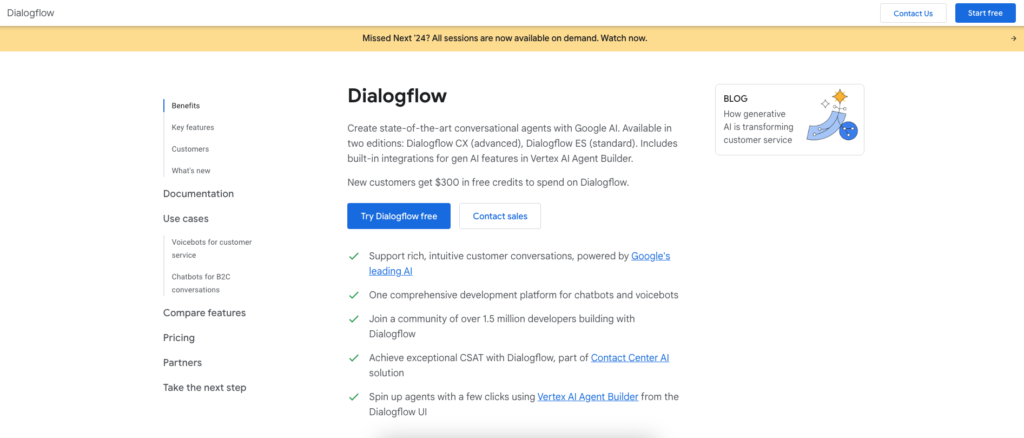
Dialogflow, developed by Google, is a natural language processing platform that allows developers to create conversational interfaces. It offers a range of capabilities, including natural language understanding, machine learning, and cloud-based computing, to build AI-powered chatbots and voice assistants. Dialogflow can integrate with various platforms and devices, such as Google Assistant, Facebook Messenger, Slack, and more. It’s widely used for customer service, lead generation, appointment scheduling, and other applications.
Pricing:
- Free Trial: Unlimited length, restricted functionality
- Essentials: $0.002 per request after free tier, pay-as-you-go model
- Advanced: $0.0065 per request after free tier, pay-as-you-go model
- Enterprise: Custom pricing
Pros:
- Powerful natural language processing
- Scalable and customizable
- Built-in integrations for easy setup
- Strong community support
Cons:
- Steep learning curve for beginners
- Integration complexity with certain systems
- Limited ability to customize lexicon on lower tiers
- Higher latency than competitors in processing requests
2. IBM Watson: Conversational AI for Enterprise
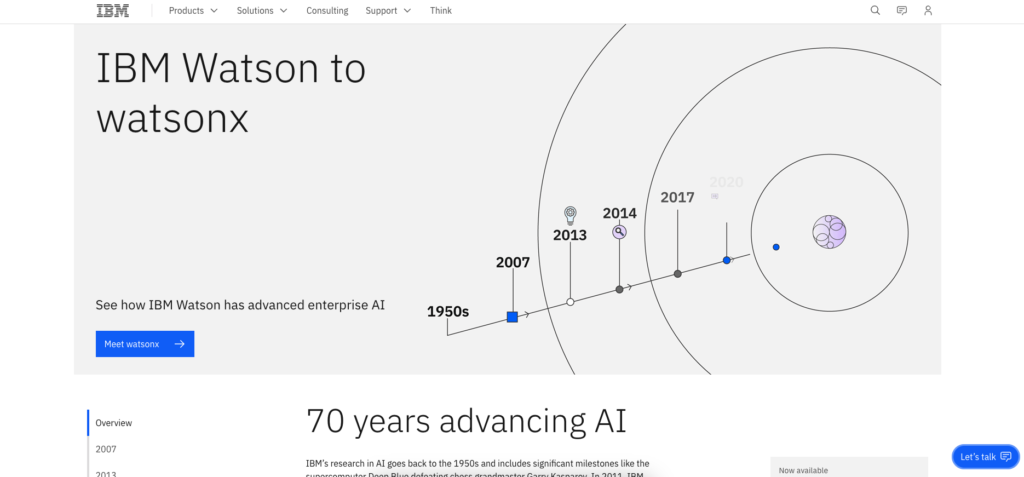
IBM Watson Conversational AI enables businesses to create, deploy, and manage AI-powered chatbots designed to engage with customers in natural language. It integrates with popular messaging platforms like Facebook Messenger and WhatsApp and is powered by IBM’s cloud-based Watson AI platform, which uses machine learning and natural language processing to continually improve chatbot interactions.
Pricing:
- Lite: Free for up to 100 API calls per month
- Standard: $0.0025 per API call after the free tier
- Premium: Custom pricing
Pros:
- Powerful natural language capabilities
- Easy dialog skill building
- Strong analytics for understanding chatbot users
- HIPAA-compliant features for healthcare use cases
- High accuracy in the industry
Cons:
- Steeper learning curve than some competitors
- Integration complexity with some systems
- Limited multilingual support on Lite plan
- Higher cost at scale
- Less customizable than open-source options
3. Amazon Lex: Unlock the Power of AWS for Chatbots
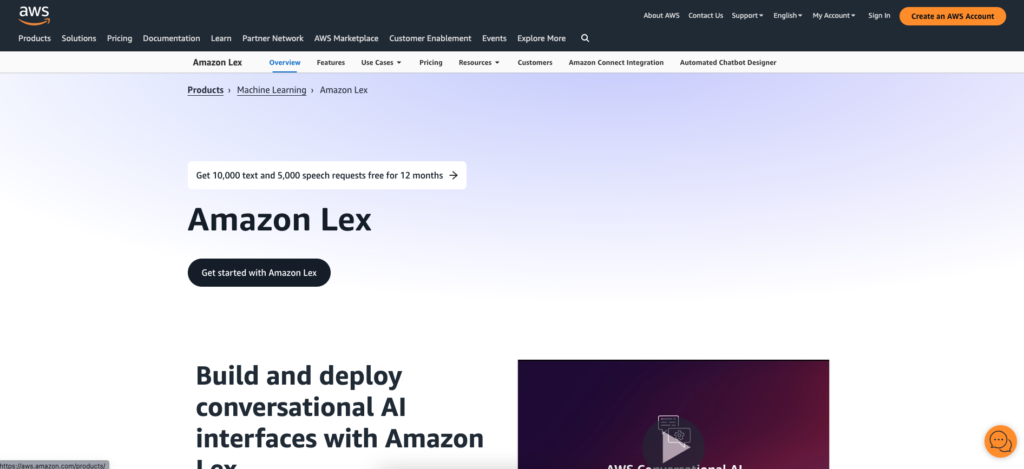
Amazon Lex, a service by Amazon Web Services (AWS), allows developers to build voice interfaces for various devices and platforms. It uses natural language processing and machine learning algorithms to understand and interpret user inputs, facilitating the creation of intuitive and conversational user experiences. It supports multiple languages and can integrate with various AWS services and third-party products.
Pricing:
- Free Tier: 10,000 text requests/month, 5000 speech requests/month
- Standard: $4 per 1 million text requests, $4 per 1 million speech requests
- Premium: Discounted rates on high volume packages
Pros:
- Seamless integration with AWS services
- Scalable to billions of requests for enterprise-scale
- Automatic speech recognition capabilities
- Pre-built bots and templates require less coding
- Cost optimization of unused capacity
Cons:
- Steep learning curve for using Lex console
- No graphical dialog builder requiring coding skills
- Limited flexibility in pricing tiers
- No analytics dashboard for monitoring
- Less control over training data
4. Pandorabots: Community-Powered Bot Platform
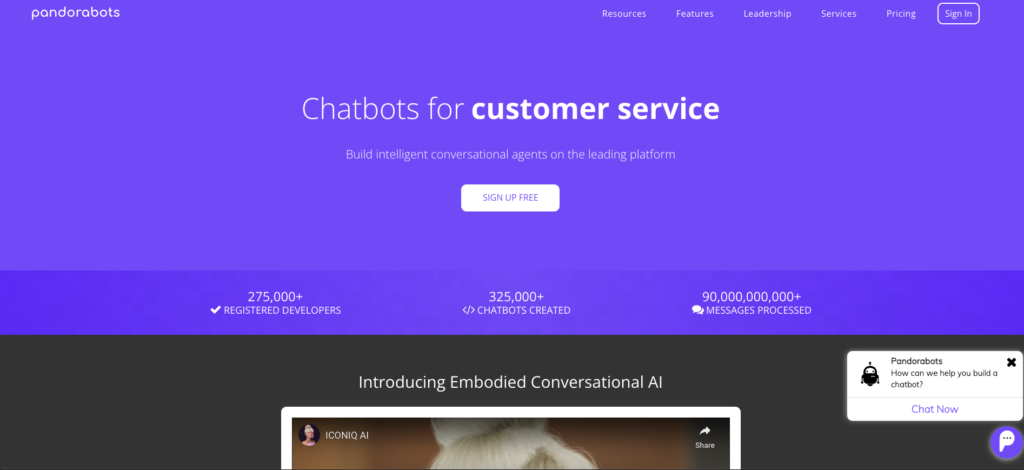
Pandorabots offers an AI platform for creating chatbots that interact with users through text or voice commands. These bots provide information, entertainment, and assistance, and are often used on websites or social media platforms to enhance user engagement. Pandorabots is known for its community-driven content and simple user interface.
Pricing:
- Free: 5 bots, read-only access
- Starter: $24/month – 20 bots, increased usage limits
- Professional: $99/month – 50 bots, API access
- Enterprise: Custom pricing
Pros:
- Significant pre-built content from the community
- Simple user interface requiring no coding
- Monitoring tools to track bot conversations
- Scales to a large volume of bots in the enterprise plan
- Cost-effective entry pricing tiers
Cons:
- Limited NLP accuracy for complex requests
- No native integration with common channels
- Less control over bot training compared to open-source options
- Conversational flows less advanced than Voicify dialogue tools
- No built-in analytics dashboard
5. Botpress: Open Source Chatbot Excellence
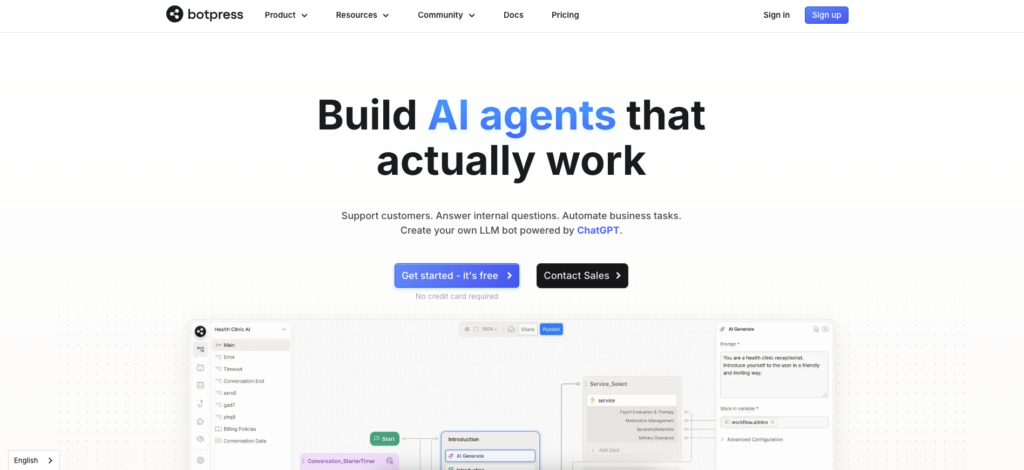
Botpress is an open-source platform for building conversational AI applications. It provides tools for creating custom conversational experiences for messaging platforms, websites, and mobile apps. Botpress supports various integrations and offers features like natural language processing, speech recognition, and machine learning.
Pricing:
- Free: Open source tier available
- Pro: $149 per month billed annually
- Enterprise: Custom pricing
Pros:
- Open source enables full customization
- Seamless CMS integration for managing content
- Conversational analytics dashboard
- Active developer community
- APIs enable integration across channels
Cons:
- Steep learning curve for new developers
- Limited pre-built templates requiring more coding
- No native omnichannel support
- Self-managed hosting and infrastructure
- Limited scalability in open-source tier
6. Creative Virtual: Multilingual Bots Made Easy
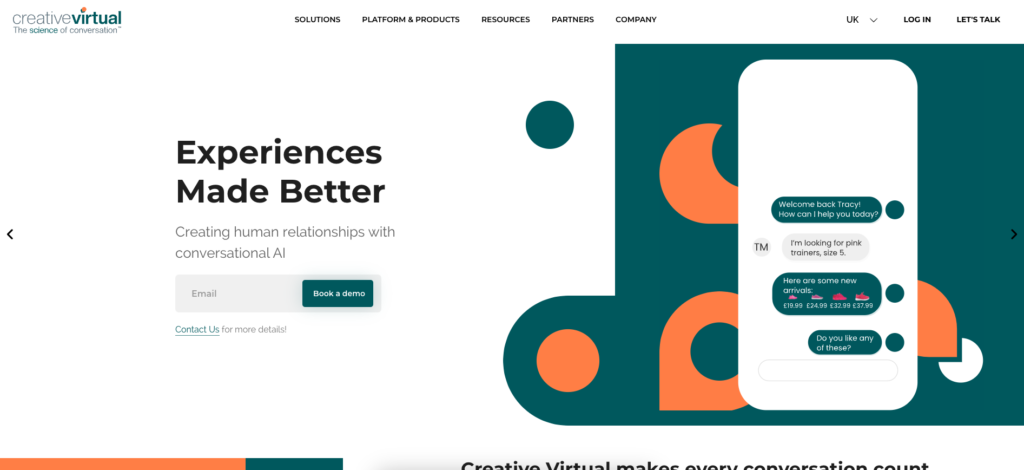
Creative Virtual’s Conversas platform allows businesses to create custom digital assistants for various functions, such as customer service, marketing, and sales. The platform is designed to be user-friendly, requiring no technical knowledge to deploy virtual assistants. Creative Virtual also provides training and support to help businesses maximize their use of the platform.
Pricing:
- Start: $1,000/month for 10,000 interactions
- Growth: $3000/month for 50,000 interactions
- Enterprise: Custom pricing
Pros:
- Natural language understanding capabilities
- Personalized customer experiences
- Enterprise-level security and compliance
- API access for custom integrations
- Scalable to billions of interactions
Cons:
- Limited flexibility in scaling up or down
- Integration complexity with some systems
- Steep learning curve for beginners
- Higher cost compared to open-source alternatives
- No built-in analytics dashboard
7. Next IT Alme: Emotionally Intelligent Bots
Next IT Alme provides a virtual assistant service that uses AI-powered conversational interfaces to interact with users. Alme’s platform includes language analysis tools for processing call transcripts and chat logs, aiming to enhance interactions and increase satisfaction. It is particularly noted for its emotional intelligence capabilities.
Pricing:
- Free Trial: 10,000 interactions
- Starter: $250/month for 100,000 interactions
- Pro: $1,000/month for 500,000 interactions
- Enterprise: Custom pricing
Pros:
- AI-powered conversational interface with 1:1 messaging
- Integration with popular messaging platforms
- Emotional Intelligence and cognitive AI capabilities
- Enterprise-level security and compliance
- Cost-effective pricing tiers
- Scalable to billions of interactions
Cons:
- Limited customization and branding options
- No open-source option
- Steep learning curve for developers
- Limited analytics and reporting
- No built-in integrations with popular CMS platforms
- Limited visual workflow designer
